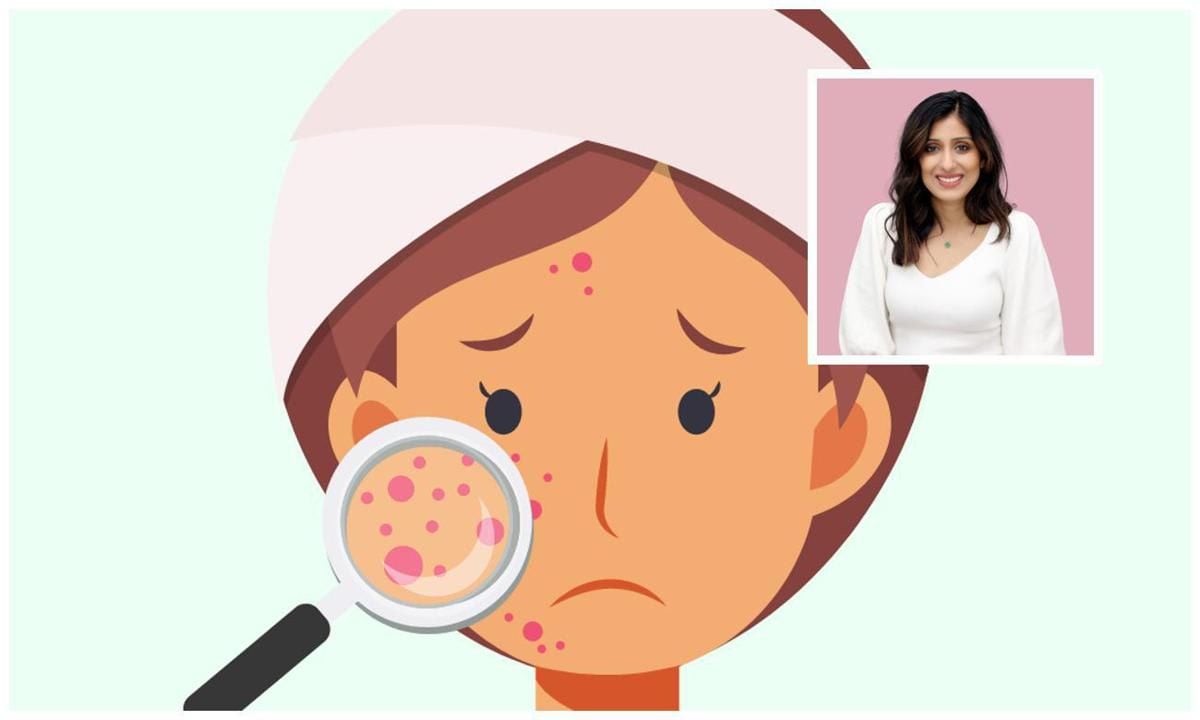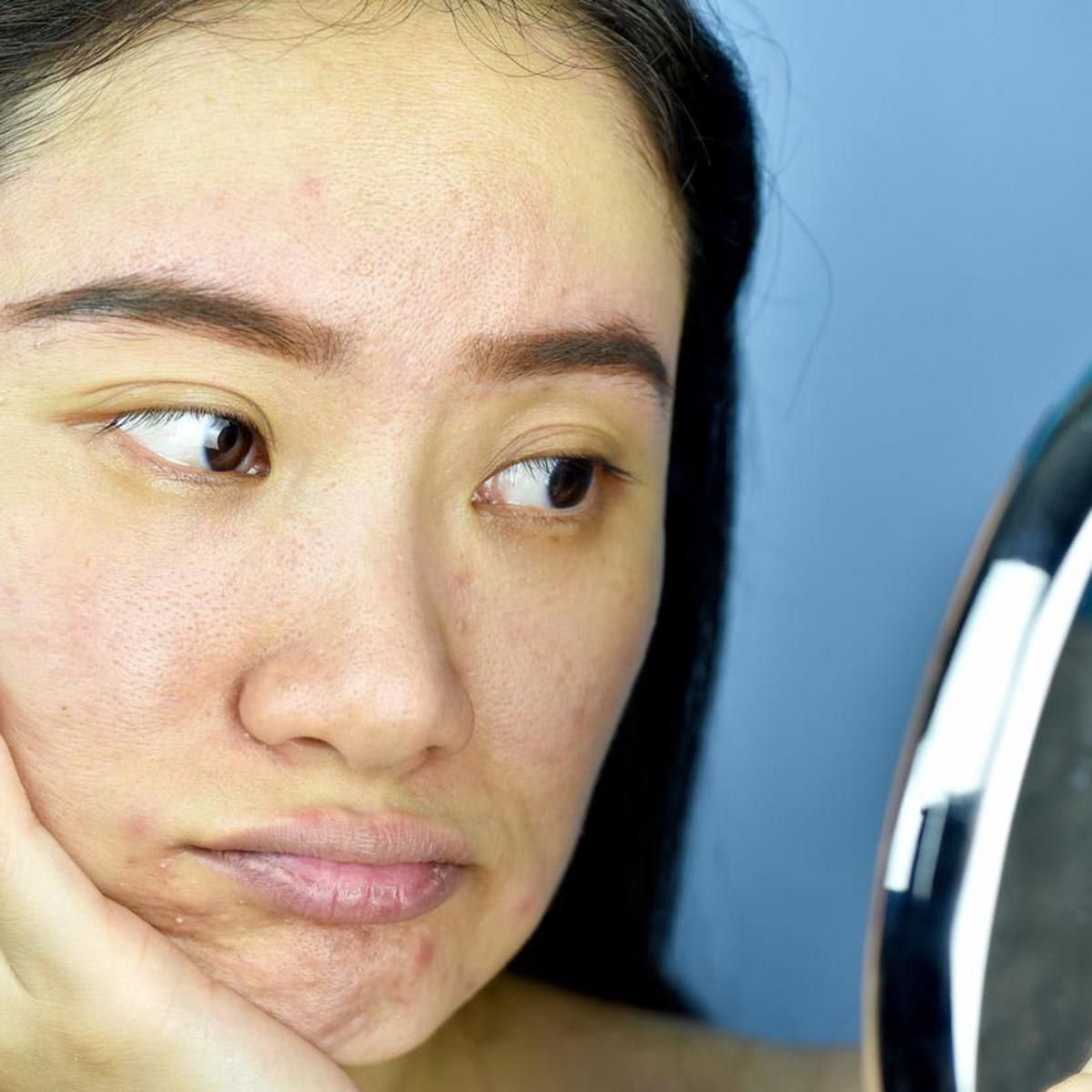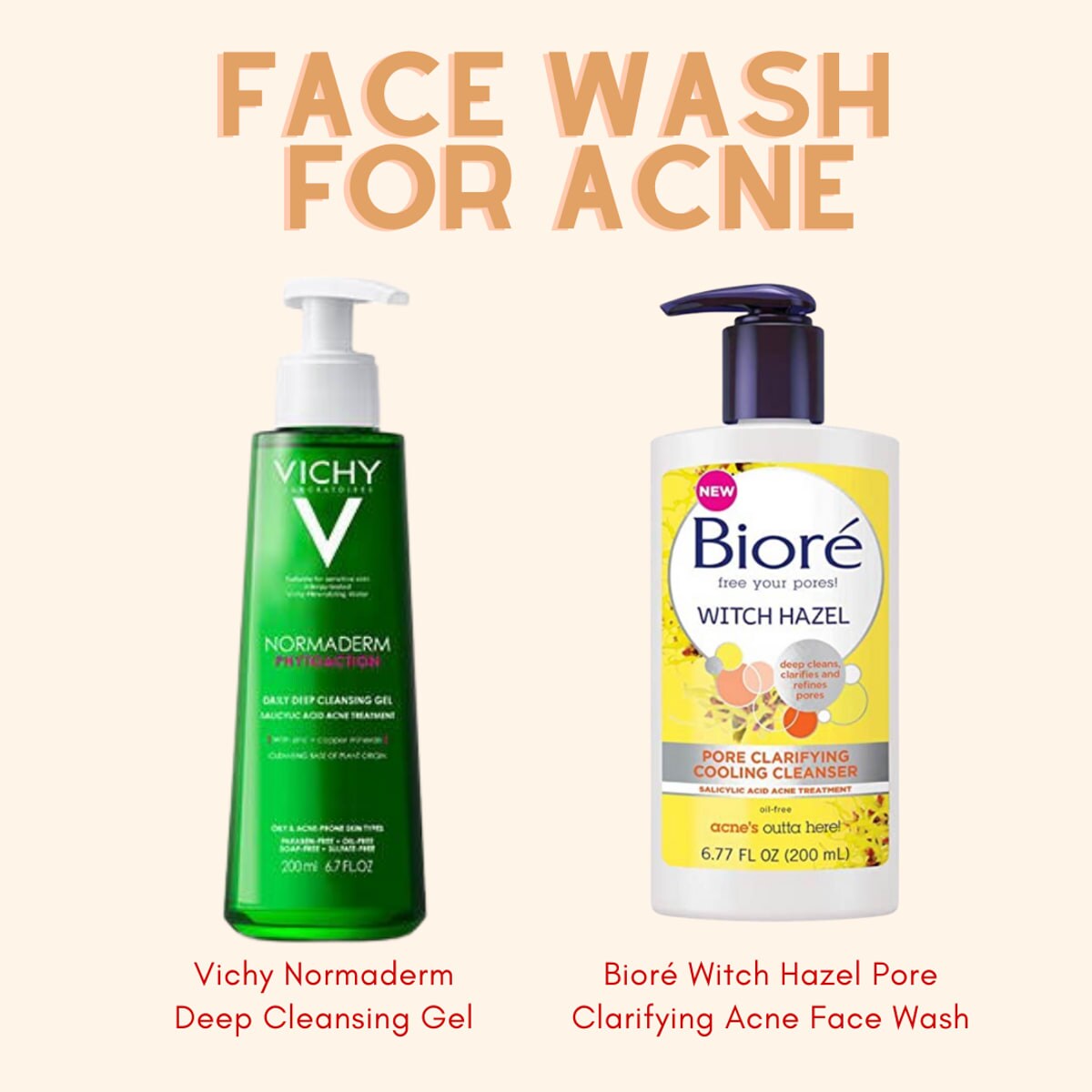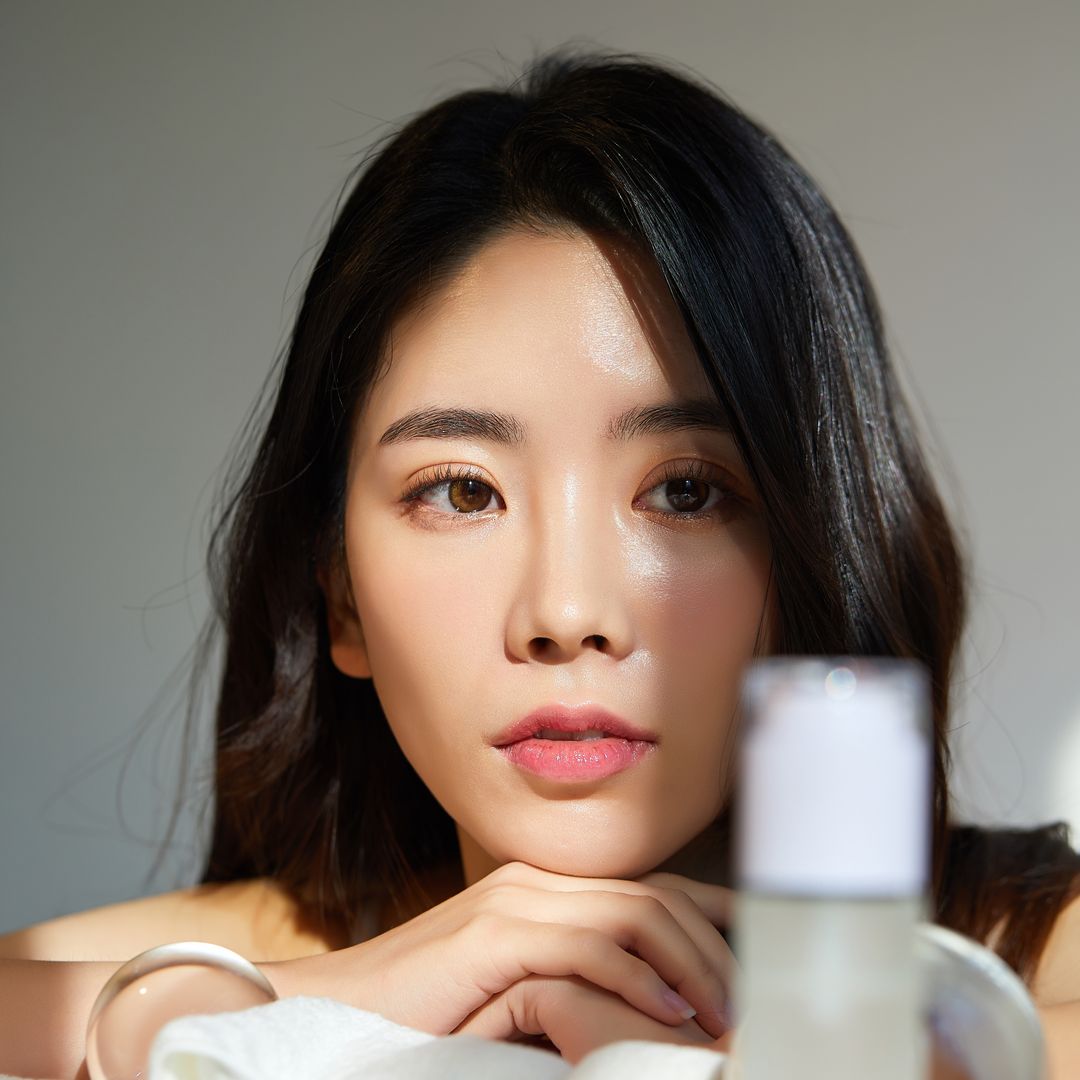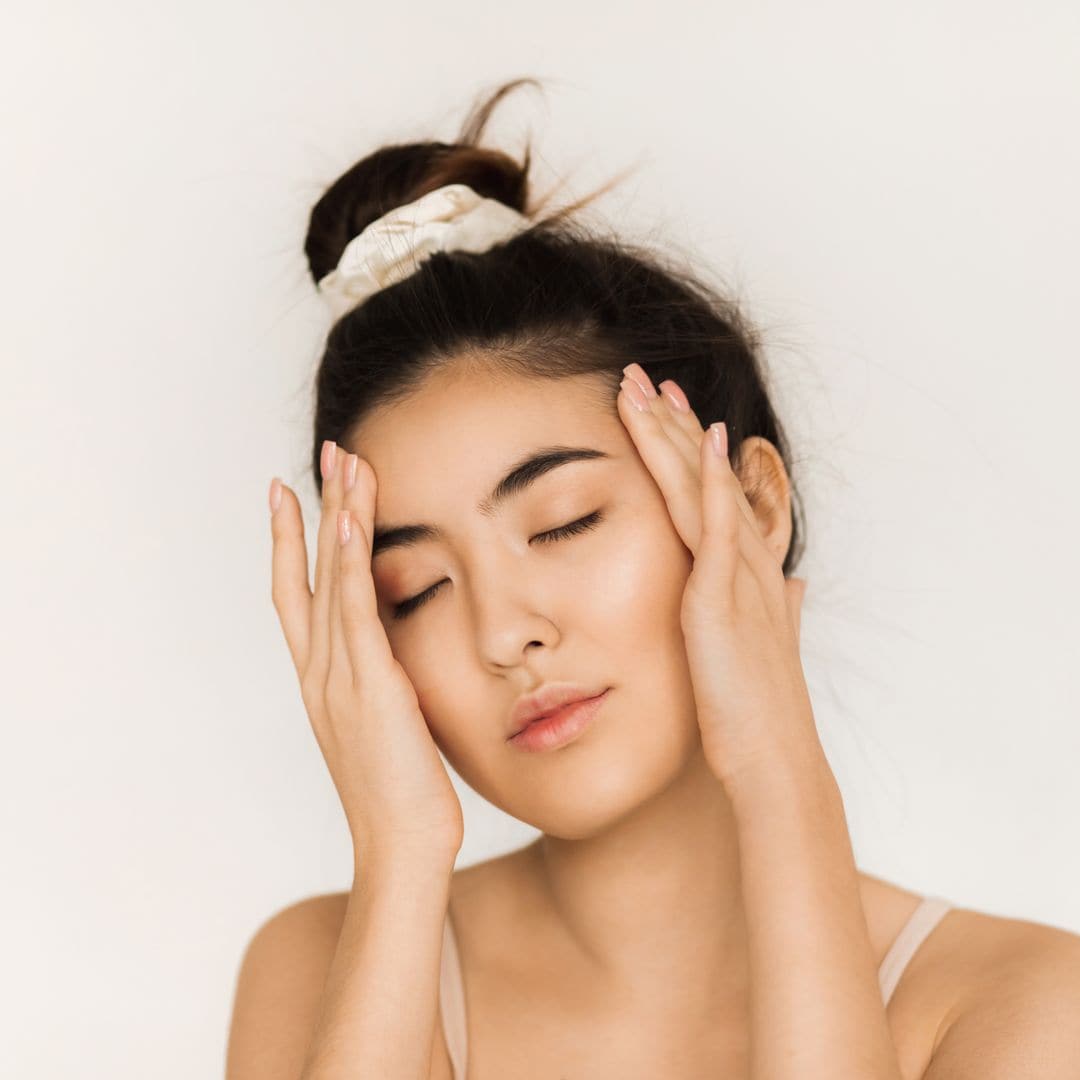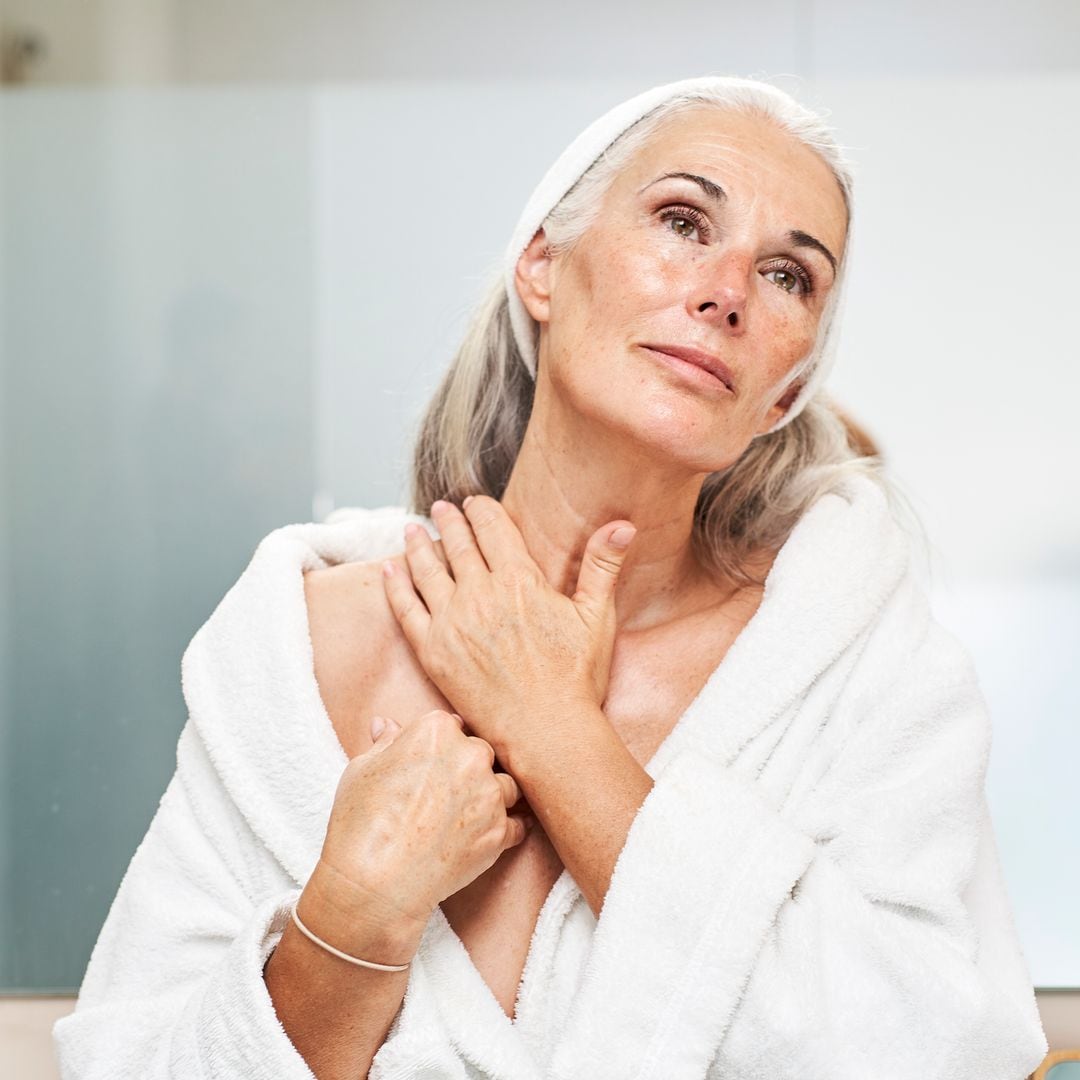You are not a teenager anymore, but you are waking up to find yourself with breakouts you haven’t seen before. Whether it is blackheads and whiteheads to painful cysts, these unavoidable skin inflammations in your adulthood are called hormonal acne.
What is hormonal acne?
“Hormonal acne is triggered by an imbalance of hormones, specifically estrogen and androgens resulting in ‘cyclical breakouts’ that usually coincide with a person’s menstrual cycle,” skin expert Dr. Sajani Barot PharmD tells HOLA! USA. “As such this is more common in women between the age of 20-40. Breakouts usually present around the chin or mouth area , and during certain times of the month. It may or may not be close to your menstrual cycle.”
What triggers hormonal acne?
“Stress hormone cortisol can also be a trigger for many if the breakouts happen during periods of high stress. Many women in their 20s and 30s get these right around their menstrual period when there is a surge of the hormone progesterone,” says Barot, a career pharmaceutical industry professional and founder of a beauty tech start-up, The Skin Consult.
“Fluctuations of estrogen, progesterone, and testosterone can cause zits and pimples to pop. In addition, these fluctuations can also happen during pregnancy and menopause. During these times of increased hormones, the body produces more sebum, an oily, waxy substance,” the doctor adds.
Can hormonal acne be treated as regular acne?
“It is part of the treatment. Regular acne and hormonal acne both require treatments that target sebum overproduction, such as salicylic acid. But in hormonal acne, you have to get to the root of the cause which is to normalize the hormones. As such, certain birth control pills like Yaz or Yasmin are FDA approved for acne,” the skincare expert explains. “‘Hormonal acne’ is not a medical term, so you wont see that in FDA-approved prescribing information for these medications. In addition, another medication such as Spironolactone is an aldosterone antagonist which decreases the activity of androgen receptors and is also used commonly for hormonal acne.”
According to Dr. Barot, hormonal acne still needs a skin care regimen that helps to exfoliate and clear people’s pores. “Our platform, The Skin Consult, can help with creating a personalized regimen. You can book a virtual consultation with a skincare professional or take a quiz to get recommendations,” she suggests.
Can hormonal acne be treated naturally?
“No, natural products may or may not alter your hormone imbalance and there are no clinical studies to support this,” the doctor notes.
Are there any supplements or products you would recommend?
“Salicylic acid-based cleaners and toners are great to reduce sebum production, and a product with AHAs such as glycolic acid can be good to de-clog your pores as well. It is important to use non-comedogenic products that has very rich emollient ingredients such as petrolatum that can clog the pores.”
Does retinol work for hormonal acne?
“Yes! Retinol is good for all acne,” Dr. Sajani Barot PharmD tells HOLA! USA. “It helps to increase turnover from an average of 30 days to 7 days. However, these patients may need prescription treatment targeting their hormones in addition to the retinol as well. Retinol will only work on the surface.”
,type=downsize)

